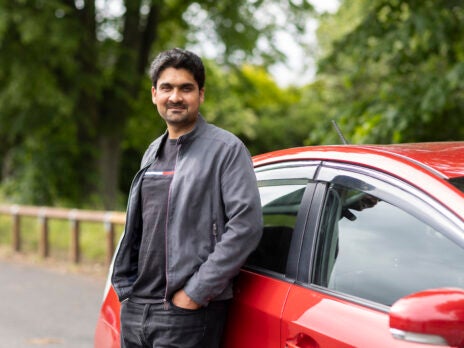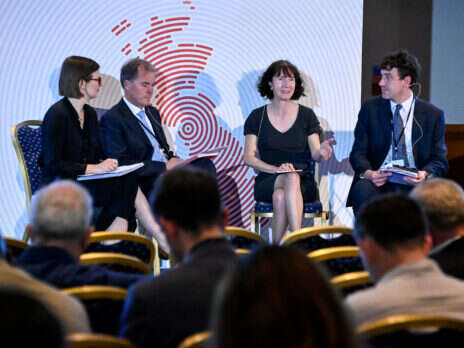Its Funny Until It Happens to Meã¯â»â¿

The 24 September 1986 is a date etched into Frank Skinner's mind. It was when he gave up drinking alcohol. Now, over three decades later, sipping soda water on a hot summer's afternoon at The Freemasons pub in Hampstead, does he miss it? "For the first 20 years I did," he admits after a long pause. "I dreamt about it maybe twice a week for a time. I missed, I suppose, the adventures that it brought about. I missed waking up in places without having known how I got there… it made me feel like I was part of some alternate society."
But aged 62, Skinner says he is able to be "in the [entertainment] world without being of it." In fact, the comedy industry's culture of post-show boozing, he observes, is actually on the wane. While in the past it was common for comics to finish their sets "late at night and still be craving another buzz after performing", the modern stand-up scene is, in his experience, more measured. "A lot of the younger guys are drinking less these days. A lot of comedy takes place in venues that serve alcohol, so in the past, after the show was finished, it wasn't unusual, when already on a high, for performers to drink, to keep that buzz going. But for whatever reason there seems to be less of that now."
The life of a touring performer, Skinner says, didn't always easily lend itself to health consciousness. "Before, if you were doing a set and it finished at ten and you wanted to get something to eat after, well, the choices you were going to have weren't going to be healthy choices. I remember I did a tour with Al Murray in 1991 and over the course of it we'd both put on a stone." That, he notes, has also changed with time. "Now you've got these M&S Simply Food things and salads or fruit available at all hours. It's different."
In 1991, a firebrand Skinner won the award for best comedy show at the Edinburgh Festival Fringe with a lewd and laddish style. But both he, and his comedy, he says, have "grown up" since then. A departure from dirty jokes is not, he insists, the result of self-censorship or some sudden crisis of conscience, but simply reflective of the evolution of his own character. He explains: "My comedy has always been about expression, rather than invention. I'm always going to talk about things that have been happening to me. In the late Eighties or early Nineties, I was single. I was sleeping around. As I've got older, things have changed. My shows have always been profoundly autobiographical."
Two significant developments in Skinner's life have been reconnecting with his faith — he is a practising Roman Catholic — and becoming a father at the age of 55 ("pretty late by anyone's standards"). When he was younger Skinner thinks he suffered from a "fear of missing out". He says: "I never stayed in. I always thought there was a party going on somewhere that would change my life. I was desperate to be involved… I lived on impulse." Although there is "no right time" to become a parent, Skinner says coming to it late was "perhaps more right" for him. "I love it. I love every aspect of it, even the most mundane, routine things. Stopping in with the kid now isn't a chore at all."
Does the departure from dirty jokes mean that Skinner's humour is getting tamer? "No, I wouldn't say that." Is it possible to joke about religion without being offensive? "I think you'd find it hard to do comedy without offending someone. There's someone out there whose parents were probably killed in a car crash after swerving to avoid a chicken crossing the road. My position is that you can joke about anything so long as you yourself can stand by it as a person. My jokes would have to fit in with my own moral code."
Content from our partners



For all the change in Skinner's life, football has remained a constant. The lifelong West Bromwich Albion fan, who presented the clip and chat show Fantasy Football League with his long-term collaborator David Baddiel, says he isn't jaded by the influx of cash into the sport. "I think once you strip all that away, the TV deals, the money," he says, "football is still ultimately about the game. For those 90 minutes, you're still watching it for that spectacle. So from that perspective, football is pretty much bullet-proof."
While Fantasy Football League did include numerous sketches and skits, Skinner says he prefers to try and keep his comedy and his fandom separate nowadays. The "banter" era of football, has inspired "too much content" that isn't relevant to the sport. "I was listening to a football podcast the other day and the guys started talking about what different football managers would dance to if they went to a disco. Come on, I don't care about that. I want serious discussion about football, about tactics and formations, from people who know what they're talking about."
England's run to the semi-finals of the Fifa World Cup last summer, Skinner says, was "a lot of fun", though came with the caveat that his son is now Tottenham Hotspur supporter. "I did everything I could to stop that… he had the West Brom kit with his name on. But I think if you want a club side that is basically England, that has Harry Kane and Dele Alli in it, well then Spurs are the choice."
In 1996, Skinner, along with Baddiel and pop-rock band The Lightning Seeds, wrote "Three Lions", a song to mark England's hosting of that year's European Championships. Last summer, during England's run to the World Cup semis, the song enjoyed renewed popularity. What's the better football anthem, then, "Three Lions" or "You'll Never Walk Alone"? Skinner smiles. "Well, I think while 'You'll Never Walk Alone' can be credited with a great significance for one particular club side, 'Three Lions', well, that unites a nation."
Skinner will take his latest show, Showbiz, to Edinburgh this August – his first appearance at the Fringe in five years. Whereas other comics might have become more "arty" in their approach to stand-up, Skinner says his routine will continue to revolve around "the joke itself". Skinner doesn't buy into the need for a narrative per se. He'll still tell "stories", sure, but blending those with quick-fire gags about "whatever I happen to find funny" is a style that he is committed to. "Other comics I've talked to have told me they're using a director for their shows. That's an alien concept to me. Some comedians think that it might be cooler to be an actor — not me."Showbiz, Skinner explains, "doesn't have a theme really". His kaleidoscope comedy covers everything from celebrity gossip and ageing, to fatherhood and Star Wars.
Ultimately, this summer, a very different Frank Skinner will arrive at the Fringe to the one that performed in 1991, but the motivations behind his comedy, he assures me, remain the same. "I'm still chasing 'it'. I think that's what all comedians are doing… they're in search of 'it'. It's hard to define what 'it' is, but when you've found it, you'll know. It doesn't matter whether I'm performing to a pub of 20 people, or on the telly, that feeling, that buzz, when you feel like everything dripping off you is funny, that's what I enjoy. There's nothing to compares to that, nothing at all."
Source: https://www.newstatesman.com/culture/2015/03/frank-skinner-some-comedians-think-it-might-be-cooler-be-actor-not-me
0 Response to "Its Funny Until It Happens to Meã¯â»â¿"
Post a Comment